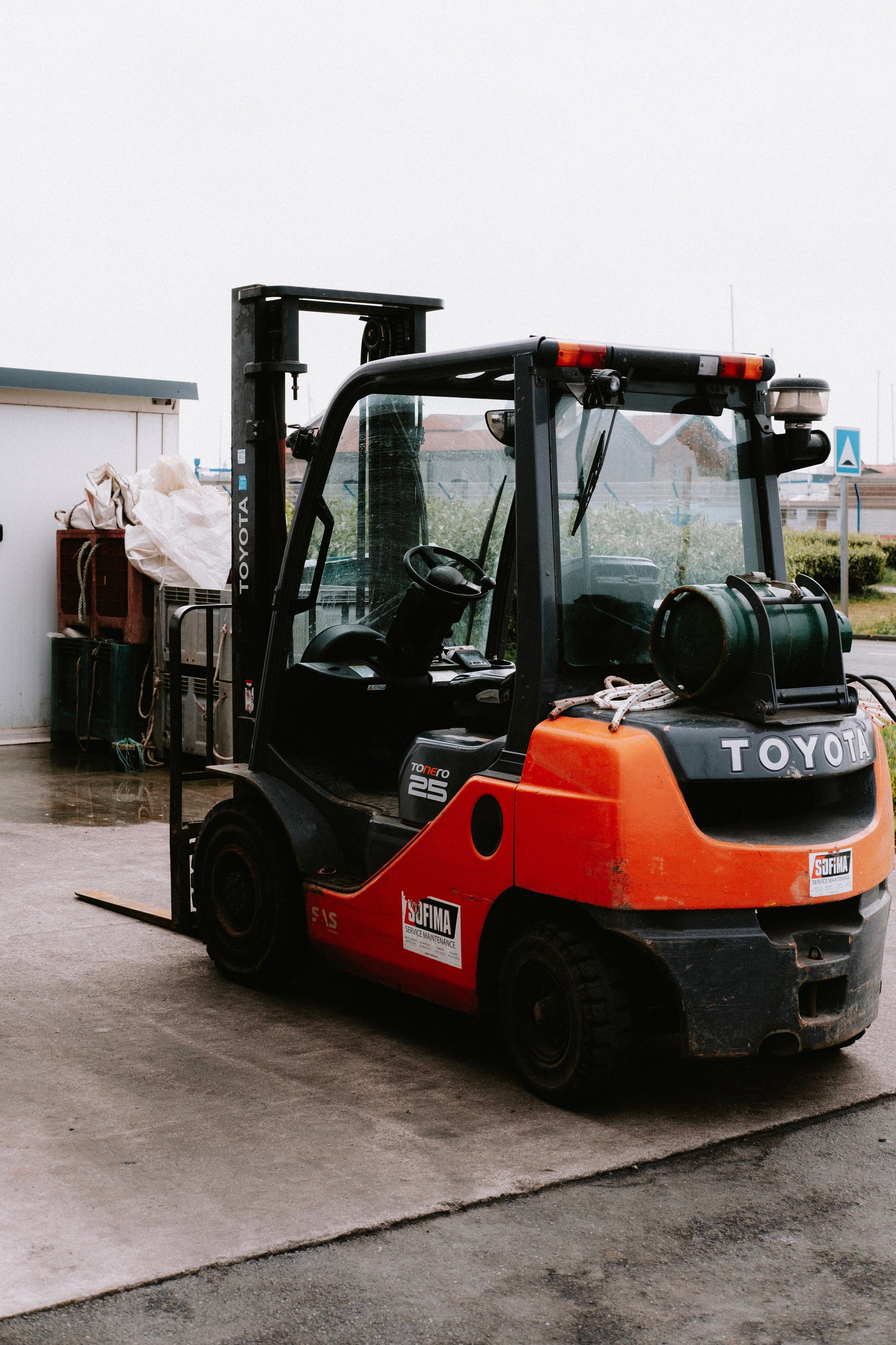
At Tawny Fork Lift Training, we focus on delivering top-notch forklift training right here in the heart of Central England. Our services extend to Staffordshire, Derbyshire, Nottinghamshire, Leicestershire, Warwickshire, and West Midlands. Whether your business operates in the urban centres or quieter rural areas of these regions, our dedicated training solutions are readily available. We aim to make quality forklift training accessible to you, ensuring safety and expertise delivered to your doorstep.
High Quality, low cost forklift training. Discounts offered for new customers and bulk bookings!
Varieties of Training Programs Available;
Counterbalance (B1 & B2)
Reach (D1 & D2)
All Categories of PPT (A1 – A7)
Multi-Directional (M1 – M3)
Pivot-Steer (P1 & P2)
Man-Down VNA (F2)
Vertical Lift MEWP (3A)
Articulated Lift MEWP (3B)
Rough Terrain Masted Lift Trucks (J1)
Telehandlers (J2 & J3)
Industrial Telehandlers (J4 & J5)
Vehicle Mounted Lift Trucks (TD1)
Delivered by RTITB Qualified Instructors Following RTITB Guidelines and Time Matrices, with Potential Accreditation Options in the Future Based on Demand.
Which course is right for you?
-
Target Audience: Novice training is designed for individuals who have little to no prior experience operating forklift trucks.
Content: It covers the fundamentals of forklift operation, safety guidelines, and basic skills needed to operate a forklift safely and efficiently.
Duration: Novice training typically spans from 3 - 5 days, depending on the number of candidates.
-
Target Audience: Refresher training is intended for certified forklift operators who need to renew their certification and refresh their skills.
Content: It reviews essential safety practices, updates operators on any regulatory changes, and assesses their current abilities to ensure they remain competent and safe.
Duration: Refresher training is typically shorter than initial training, often taking just a day for 3 candidates.
-
Target Audience: Conversion training is for experienced forklift operators who need to switch to a different type or model of forklift.
Content: It focuses on the specific features, controls, and operating characteristics of the new forklift type. It ensures that operators can safely transition to the new equipment.
Duration: The duration varies but is typically shorter than novice training, as it builds on the operator's existing skills.
-
Target Audience: Experienced training is for individuals who have prior forklift experience but may not have formal training or certification.
Content: It builds on existing skills and knowledge, addressing any gaps and reinforcing safe practices. It may include advanced techniques and equipment-specific training.
Duration: The duration varies but is generally shorter than novice training, as it focuses on enhancing existing skills.
Each type of forklift training serves a distinct purpose, catering to the needs and backgrounds of operators. It's essential for employers to identify the appropriate type of training for their employees to ensure they are adequately prepared and compliant with safety regulations.
Upon completion, successful candidates will be awarded with certification stating that their training meets the requirements of the Approved Code of Practice: L117 - Rider Operated Lift Trucks. For reference, follow the link.
Training Logistics and Requirements
At Tawny Lift Truck Training, we are committed to providing convenient and effective forklift training that suits your needs. Our training sessions are designed to take place at your premises, ensuring that the learning environment is familiar and tailored to your specific workplace requirements.
To facilitate our training effectively, there are a couple of important considerations to keep in mind:
Adequate Space:
Please ensure that you have adequate space available for the training sessions. A safe and spacious area is crucial to practice forklift manoeuvres and exercises. This space should resemble your actual working environment to make the training as practical and relevant as possible.
Empty pallets may be needed to lay out a course, and should be, if possible, segregated from the rest of the work place.
Compliant Lift Truck:
You will need to provide a lift truck that conforms to the relevant safety regulations, including HAWASA (Health and Safety at Work etc. Act 1974), PUWER (Provision and Use of Work Equipment Regulations), and LOLER (Lifting Operations and Lifting Equipment Regulations). Our training is designed to be compliant with these regulations, and having the right equipment ensures that the training is not only effective but also safe.
Rest assured that our experienced and RTITB qualified instructors will work closely with you to make sure the training is seamless and customized to your workplace. If you have any questions or concerns regarding the training space or equipment requirements, please don't hesitate to get in touch. We're here to provide the highest standard of training that suits your needs.
“One must take reasonable care to avoid acts or omissions that could reasonably be foreseen as likely to injure one's neighbour.”
— Lord James Atkin (1932).



